| Gemstone Chart |
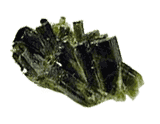 Natural Idocrase Natural Idocrase
Primarily a green color that will resemble jade.idocrase is one stone that is sometimes mistaken for jade by jewelers and consumers alike. Idocrase is from the greek and means mixed form, an allusion to its crystals showing a mixture of other mineral forms.
Color: normally green, but also can be brown, yellow, blue and/or purple.
Categories: semi-precious stone
Chemical Composition: nesosilicate or sorosilicate
Crystal Group: Tetragonal
Refractive Index: 1.71 - 1.73
Hardness: 6.5
Density: 3.3 - 3.5
Occurrence: Quebec, Canada; California and the New England region of USA; Mt Vesuvius, Italy; Ural Mountains, Russia, Switzerland, East Africa
| 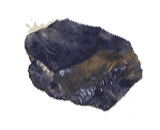 Natural Iolite Natural Iolite
Iolite is a popular and interesting gemstone, and is the gem variety of the mineral cordierite.It has also been called water sapphire because it looks very much like a blue sapphire.
Color: violet, blue, dark blue,
Categories: semi-precious stone
Chemical Composition: MG2AL4SI5O18
Crystal Group: Orthorhombic
Refractive Index: 1.53 - 1.55
Hardness: 7 - 7.5
Density: 2.57 - 2.66
Occurrence: Sri Lanka; Burma; India; Tsivory,Madagascar; Canada; Namibia; Tanzania; Norway; U.S.A.; Brazil
| 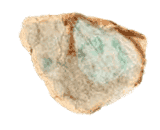 Natural Jadeite Natural Jadeite
A rare, usually green mineral of the pyroxene group. Jadeite can also occur in white, auburn, buff, or violet varieties. The most highly valued form of jade consists of jadeite.Jade has a history in China of at least four thousands years.Experts believe that, although more expensive, diamonds and gold cannot be compared with jade - jade is animated with a soul.
Color: Pure white thru pink, brown, red, orange, yellow, mauve, violet, blue, and black, to an extensive range of green and mottled green and white.
Categories: semi-precious stone
Chemical Composition: NaAl(SiO3)2
Crystal Group: Monoclinic
Refractive Index: 1.654 - 1.667
Hardness: 7
Density: 3.32
Occurrence: Northern Myanmar. Non commercial discoveries of Jadeite have also been reported in China; Russia (in the Polar Urals); Niigata, Japan; San Benito County, California, USA, and Guatemala.
| 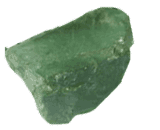 Natural Kornerupine Natural Kornerupine
Kornerupine is a rare mineral occasionally used as a gemstone. It appears frequently in parcels from Ceylon and may be confused with beryl, peridot, topaz, or quartz.
Color: Brown, brownish red, yellow-green, light green, blue green
Categories: semi-precious stone
Crystal Group: Orthorhombic
Refractive Index: 1.665 – 1.683
Hardness: 6.5
Density: 3.25 - 3.35
Occurrence: Ceylon, Tanzania
| 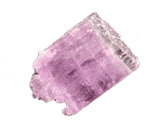 Natural Kunzite Natural Kunzite
Kunzite is the pink to light purple gem variety of the mineral Spodumene.Although kunzite is a relatively soft and delicate gem, and can fade after prolonged exposure to light, its appealing color makes it a popular gem. Small gems are seldom cut from kunzite because of its cleavage and strong pleochroism. It is rarely seen in rings, necklaces, or any other forms of jewelry where small stones are required.
Color: Pink, Lilac, Light Violet
Categories: semi-precious stone
Chemical Composition: LiAlSi2O6
Crystal Group: Monoclinic
Refractive Index: 1.660 - 1.675
Hardness: 7
Density: 3.17 - 3.19
Occurrence: Africa, Brazil, Canada, Madagascar, Mexico, Myanmar, Afghanistan, Sweden, and USA (California).
| 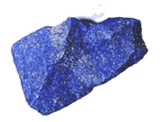 Natural Lapis Natural Lapis
Lazurite is a popular but generally expensive mineral. Well-formed, deep blue crystals are rare and valuable. Lapis lazuli is a gemstone of the kind that might have come straight out of the Arabian Nights: a deep blue with golden inclusions of pyrites which shimmer like little stars.
Color: Blue, greenish-blue, violet blue
Categories: semi-precious stone
Chemical Composition: A complex aggregate
Crystal Group: Not applicable
Refractive Index: 1.5
Hardness: 5.5
Density: 2.7-2.9
Occurrence: Afganistan, Pakistan, Chile, Russia, U.S.A., Angola, Burma
| 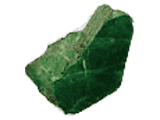 Natural Mawsitsit Natural Mawsitsit
Mawsitsit is a rare, intense green variety of jadeite found in Burma.Mawsitsit is named for its source location, the small village of Mawsitsit.It is found in only one deposit on earth..
Color: Green with black spots
Categories: semi-precious stone
Crystal Group: Not applicable
Refractive Index: 1.52
Hardness: varies, up to 7
Density: 2.5-3.2
Occurrence: Mawsitsit, Burma
| 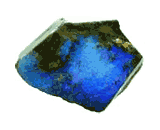 Natural Opal Natural Opal
Opal is the most colorful of all gems. It is a form of silica chemically similar to quartz, but more like glass and containing a variable amount of water within the mineral structure. Its splendid play of color is unsurpassed, and fine examples can be more valuable than diamond. Precious opals (black and white) are cut and polished into cabochons and used in all forms of jewelry.
Color: White, green, blue, black, red, orange, violet, pink, grey, yellow.
Categories: precious stone
Chemical Composition: SIO2nH2O
Crystal Group: Amorphous
Refractive Index: 1.44-1.46
Hardness: 5.5 - 6.0
Density: 2.65 - 3.00
Occurrence: Czechoslovakia, Mexico, Honduras, Australia, Brazil, Tanzania.
|
|
